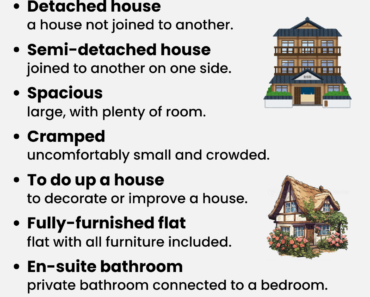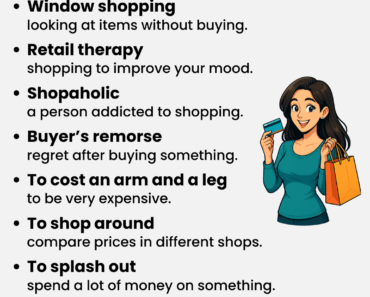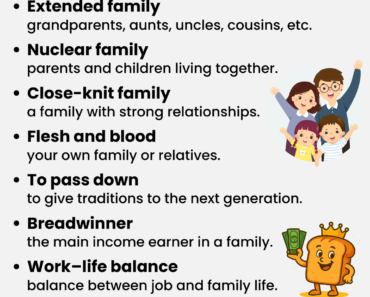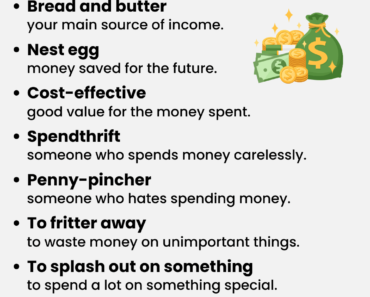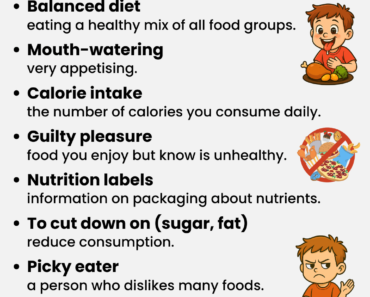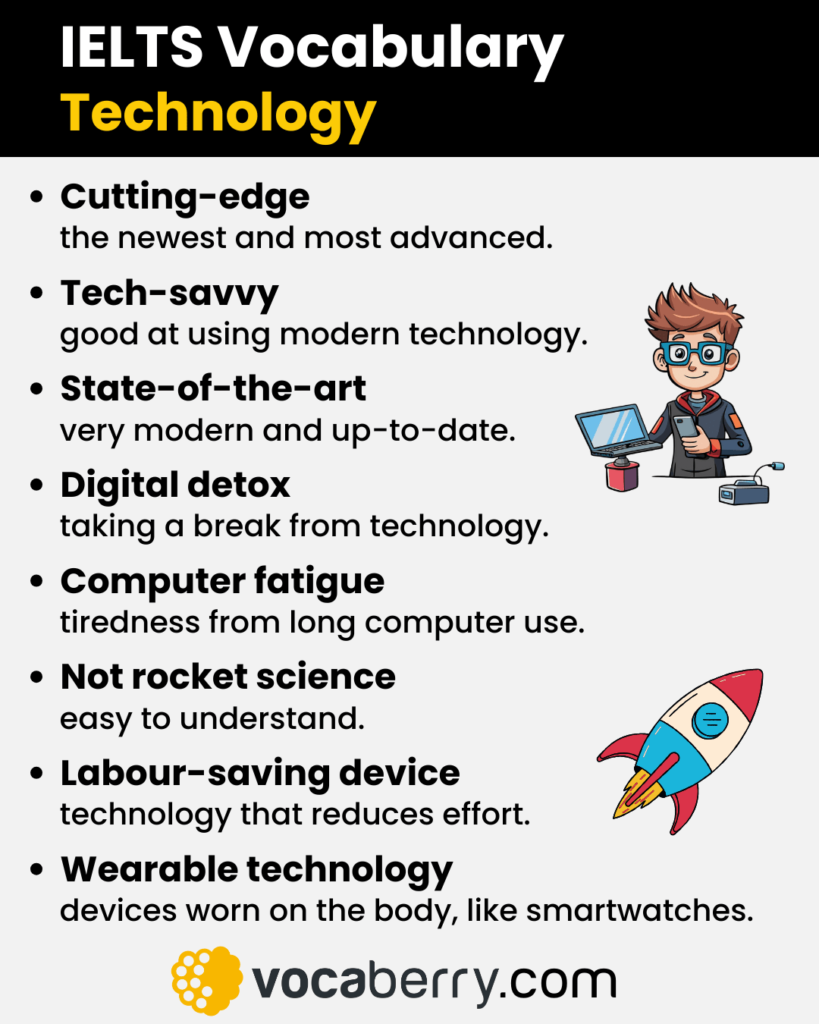
Technology is another popular topic in the IELTS Speaking test. Examiners may ask you about your use of technology, your favorite devices, or how technology has changed daily life. In this guide, you’ll find useful IELTS vocabulary for technology with clear definitions, followed by IELTS Speaking Part 1, Part 2, and Part 3 questions with sample answers.
IELTS Vocabulary for Technology
Here is some useful IELTS vocabulary for talking about technology with clear definitions. These words and phrases will help you give better answers in the IELTS Speaking test.
- Cutting-edge – the newest and most advanced.
- State-of-the-art – very modern and up to date.
- User-friendly – easy to use.
- Digital native – someone who grew up with digital technology.
- Tech-savvy – good at using modern technology.
- Technophile – a person who loves technology.
- Technophobe – a person afraid of or against technology.
- A techie – someone skilled with technology.
- Smart device – technology that connects to the internet or other devices.
- Wearable technology – devices worn on the body, like smartwatches.
- Artificial intelligence (AI) – machines that can think and learn like humans.
- Machine learning – computers improving through experience.
- Virtual reality (VR) – computer technology creating a 3D world.
- Augmented reality (AR) – digital images added to the real world.
- The Internet of Things (IoT) – everyday devices connected to the internet.
- Blockchain – secure digital system used in cryptocurrency and data sharing.
- Algorithm – a set of rules computers follow to solve problems.
- Cloud computing – using online servers instead of personal computers.
- Cloud storage – saving data on the internet instead of a device.
- Biometric authentication – using fingerprints, face, or voice to confirm identity.
- Game changer – something that dramatically changes a situation.
- Technological advancement – progress in technology.
- Technology dependency – relying too much on tech in daily life.
- Over-reliance on technology – depending too much on technology.
- Labour-saving device – technology that reduces effort.
- Data privacy – keeping personal information safe online.
- Cybersecurity – protecting systems and data from online attacks.
- Data breach – unauthorized access to private data.
- Phishing – tricking people into giving personal information online.
- Censorship – restricting or blocking online information.
- Cyberbullying – online harassment or abuse.
- Cybercrime – crime committed online.
- Digital footprint – the record of what you do online.
- Digital divide – the gap between people with and without access to technology.
- Digital transformation – adopting digital technology in all areas of life.
- Digital literacy – ability to use digital tools effectively.
- Digital addiction – being overly dependent on technology.
- The digital age – the modern era of technology.
- Computer fatigue – tiredness from long computer use.
- Tech addiction – overuse of technology causing harm.
- Digital detox – taking a break from technology.
- Screen time – the amount of time spent looking at a screen.
- Social media platforms – online spaces like Facebook or Instagram.
- Online communication – talking through the internet.
- Online learning – education through the internet.
- E-commerce – buying and selling online.
- Digital payments – paying with apps or online banking.
- Remote work – working from home using technology.
- Virtual assistant – AI helper like Siri or Alexa.
- Tech-driven society – a society shaped by technology.
- Smart home – a house with internet-connected devices.
- Smart city – an urban area managed with technology.
- Digital nomad – a person who works remotely while traveling.
- Streaming services – platforms for online media (e.g., Netflix, Spotify).
- WiFi hotspots – public places with wireless internet access.
- AI-powered applications – apps that use artificial intelligence.
- Innovative – creative and new.
- Breakthrough – major discovery or invention.
- Automation – machines replacing human tasks.
- Indispensable – absolutely necessary.
- Digitalization – converting information into digital form.
- Revolutionary – very new and impactful.
- Old-fashioned – not modern.
- Up-to-date – modern and current.
- High-tech – very advanced technology.
- Tech giant – a very large technology company (e.g., Apple, Google).
- To surf the internet – to browse websites casually.
- To browse – to look through websites or files.
- To go viral – spread quickly on the internet.
- To boot up – to start a computer.
- To revolutionise – to completely change something.
- To be mechanised – to be operated by machines instead of humans.
- To indulge in a virtual world – to spend too much time in online activities.
- To stream content – to watch or listen online without downloading.
- To lack social skills – to be unable to interact well with people.
- To become rapidly obsolete – to go out of use very quickly.
- To be glued to the screen – to spend too much time on a device.
- Not rocket science – easy to understand.
- Ahead of the curve – more advanced than others.
- A double-edged sword – something with both benefits and drawbacks.
- Plug and play – technology that works immediately when connected.
IELTS Speaking: Technology Questions & Answers
In this section, you’ll find IELTS Speaking Part 1, Part 2, and Part 3 questions on technology with sample answers. These examples show how the technology vocabulary can be used in your responses during the test.
IELTS Speaking Part 1 – Technology
Do you use technology every day?
Yes, I can’t imagine a day without it. I check the news on my phone, store files in cloud storage, and even track my fitness with a wearable technology device. Technology has really become an integral part of daily life.
What technology do you use most often?
I’d say my smartphone. It’s a user-friendly smart device that I use for digital payments, maps, and online communication. It’s basically indispensable because everything is in one place.
Do you think you spend too much time on technology?
Sometimes, yes. My screen time goes up when I’m glued to the screen watching videos or scrolling social media platforms. When that happens, I try a short digital detox to stay balanced.
How has technology made your life easier?
It’s been a real game changer. For example, remote work and AI-powered applications help me finish tasks faster. Even simple labour-saving devices at home save time, so I can focus on other things.
Is there any new technology you would like to try?
I’d love to experience virtual reality (VR) and augmented reality (AR). They look really cutting-edge and could completely revolutionise the way we learn or even travel, without leaving home.
IELTS Speaking Part 2 – Technology Cue Card
Describe a piece of technology that you find useful in your daily life.
You should say:
- what it is
- how you use it
- how long you’ve had it
- and explain why it is useful to you.
Sample Answer:
I’d like to talk about my smartphone, which, honestly, has become an indispensable part of my daily routine. It’s not just a phone anymore; it’s a multi-functional smart device that combines communication, work, and entertainment in one small gadget.
I bought my current phone about a year ago, and what I love most is how user-friendly it is. The design is sleek, and the system is incredibly fast, so I can rely on it for almost everything. For example, I use digital payments whenever I shop, which is so much more convenient than carrying cash. I also back up all my important documents and photos on cloud storage, so I never worry about losing files if something happens to the device.
Another feature I find invaluable is its role in communication. Through social media platforms and online communication apps, I can stay connected with family and friends instantly, no matter where they are. During the pandemic, it was truly a game changer, not only for keeping in touch but also for remote work and even online learning. Without it, I think my productivity would have dropped dramatically.
Of course, there are some downsides. I sometimes spend too much screen time, and I can easily find myself glued to the screen, scrolling through feeds or watching videos. That’s why I try to take a digital detox every now and then, just to recharge mentally and avoid over-dependence.
Overall, I’d say my smartphone has completely revolutionised the way I work, study, and relax. It saves me so much time, acts as a labour-saving device, and really makes life more convenient. To be honest, I can’t imagine living without it. It’s more than just technology; it’s an integral part of my lifestyle now.
IELTS Speaking Part 3 – Technology Discussion
IELTS Speaking Part 3 questions about technology often ask you to compare past and present technologies, discuss the impact of digital tools on society, and give opinions on issues such as social media, privacy, and future technological developments.
How has technology changed the way people communicate?
Technology has completely revolutionised communication. Instead of writing letters or making expensive phone calls, we now rely on social media platforms and online communication apps that make it instant and affordable. For example, I can video call relatives abroad in real time, which was impossible a generation ago. Of course, there are drawbacks, like people being glued to the screen and neglecting face-to-face interaction, but overall, I’d say technology has made communication far more convenient and user-friendly.
Do you think older people have more difficulty using technology than younger people?
Generally, yes. Young people today are digital natives, so using gadgets feels natural to them. In contrast, many older people may feel behind the times or even a bit like technophobes, because they didn’t grow up with smartphones or the internet. That said, some older generations are becoming surprisingly tech-savvy, especially with devices designed to be user-friendly. For example, I’ve seen retirees using video streaming services or making digital payments without much difficulty.
What are the disadvantages of relying too much on technology?
One clear disadvantage is over-reliance on technology, which can lead to problems if systems fail. For instance, if there’s a data breach or cyberattack, people can lose access to important information stored in cloud computing. Another issue is personal health, since too much screen time or tech addiction can cause computer fatigue and even social isolation. So, while technology is indispensable in modern life, it’s also a double-edged sword, with both benefits and drawbacks.
Do you think technology is creating more jobs or taking them away?
Both, actually. Some traditional jobs have been replaced by automation and labour-saving devices, especially in manufacturing. At the same time, new industries such as cybersecurity, cloud computing, and AI development are creating opportunities that didn’t exist before. In my opinion, technology doesn’t necessarily reduce the number of jobs, it just changes the type of skills people need. So being computer literate and adaptable is now more important than ever.
Should governments regulate technology more strictly?
Yes, to some extent. Issues like data privacy, cybercrime, and online censorship can’t be left unmonitored. For example, when companies experience a data breach, millions of people’s information may be at risk. At the same time, over-regulation could slow down technological advancement and innovation. I think governments should strike a balance, protecting citizens while still encouraging cutting-edge developments.
More IELTS Vocabulary Topics
If you found this lesson useful, explore other IELTS Speaking topics to expand your vocabulary and practice with sample answers:
- IELTS Vocabulary: Accommodation
- IELTS Vocabulary: Advertisement
- IELTS Vocabulary: Animals
- IELTS Vocabulary: Art
- IELTS Vocabulary: Artificial Intelligence
- IELTS Vocabulary: Books
- IELTS Vocabulary: Childhood
- IELTS Vocabulary: Crime and Punishment
- IELTS Vocabulary: Culture and Traditions
- IELTS Vocabulary: Daily Routine
- IELTS Vocabulary: Education
- IELTS Vocabulary: Environment
- IELTS Vocabulary: Family
- IELTS Vocabulary: Fashion and Clothes
- IELTS Vocabulary: Films
- IELTS Vocabulary: Food & Diet
- IELTS Vocabulary: Friends
- IELTS Vocabulary: Gifts
- IELTS Vocabulary: Health
- IELTS Vocabulary: Hobbies
- IELTS Vocabulary: Hometown
- IELTS Vocabulary: Money
- IELTS Vocabulary: Museums
- IELTS Vocabulary: Music
- IELTS Vocabulary: Plants
- IELTS Vocabulary: Shopping
- IELTS Vocabulary: Social Media
- IELTS Vocabulary: Sports
- IELTS Vocabulary: Transport
- IELTS Vocabulary: Travel
- IELTS Vocabulary: Weather
- IELTS Vocabulary: Work & Jobs

